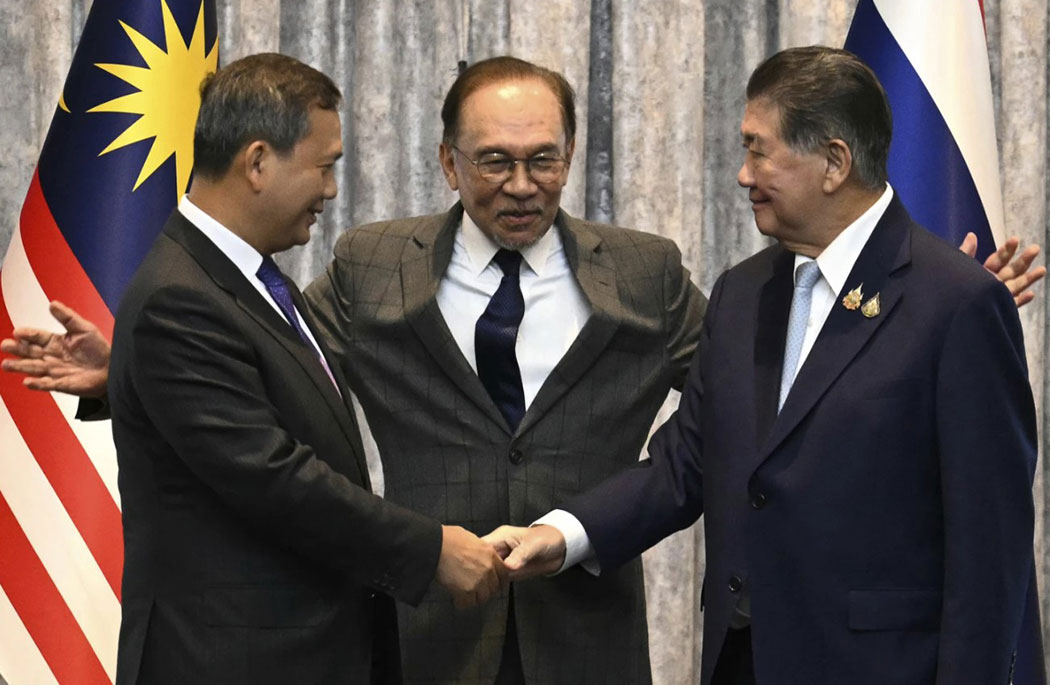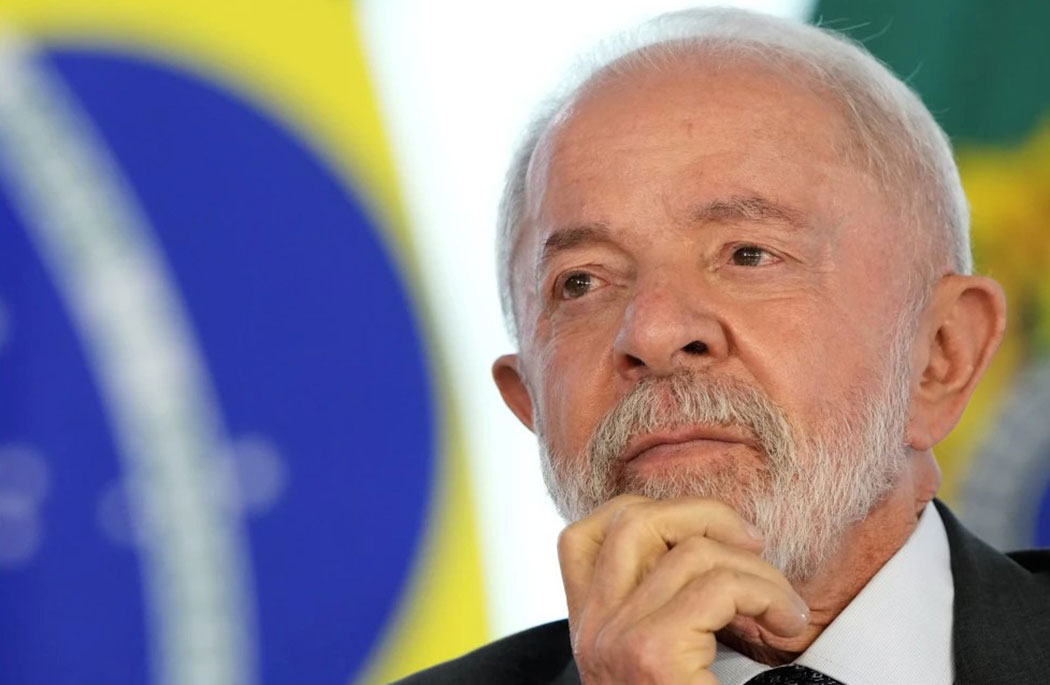World this week

Photo: AP/UNB
Thailand and Cambodia agreed to an "immediate and unconditional ceasefire" after five days of fighting at their border killed at least 33 people and displaced tens of thousands. "This is a vital first step to a de-escalation and a restoration of peace and security," said Malaysian Prime Minister Anwar Ibrahim, flanked by his Thai and Cambodian counterparts, as he announced that hostilities would end at midnight. The joint statement on the agreement said that the United States was a co-organizer of the talks, with participation from China.
Thailand initially rebuffed his offer to mediate but agreed after US President Donald Trump said tariff negotiations would not proceed until "fighting STOPS". While Malaysia brokered the talks, as much credit probably belongs in Washington, with President Trump. His ultimatum on Saturday night, threatening to stop all negotiations on reducing US tariffs unless the two countries agreed to stop fighting. Tensions over the century-old border dispute had ramped up in May after a Cambodian soldier was killed in a clash.
Saudi Arabia and France opened a three-day conference at the United Nations with the goal of recognising Palestinian statehood as part of a peaceful settlement to end the war in Gaza. The conference began on Monday, just days after the French president, Emmanuel Macron, said Paris would officially recognise the Palestinian government in September in an effort to reinvigorate peace talks around a two-state solution that have all but been written off since the deadly Hamas raid and ensuing Israeli military operation that began in 2023.
The French foreign minister, Jean-Noël Barrot, has said that the conference would also serve as a platform for other European countries to recognise Palestinian statehood. While Barrot did not specify which countries he meant, speculation has focused on the United Kingdom, where Keir Starmer is under increasing pressure from Labour MPs to put pressure on Israel to end the war.
US President Donald Trump said Monday he is giving Russian President Vladimir Putin 10 to 12 days to stop the killing in Ukraine, shortening a 50-day deadline he had given the Russian leader two weeks ago. Russia fired an overnight barrage of more than 300 drones, four cruise missiles and three ballistic missiles, the Ukrainian air force said, as the Russian bombardment of Ukrainian cities continued despite Trump's pressure for it to end. U.S.-led peace efforts have also failed to gain momentum.
Trump had said on July 14 that he would implement "severe tariffs" on Russia unless a peace deal is reached by early September. On Monday, Trump said he would now give Putin 10 to 12 days, meaning he wants peace efforts to make progress by Aug. 7-9. The plan includes possible sanctions and secondary tariffs targeting Russia's trading partners. Trump repeated his criticism of Putin for talking about ending the war but continuing to bombard Ukrainian civilians.
The US and the European Union struck a framework trade agreement on Sunday, imposing a 15% import tariff on most EU goods to the US - half the threatened rate - and averting a bigger trade war between the two allies that account for almost a third of global trade. US President Donald Trump and European Commission President Ursula von der Leyen announced the deal at Trump's luxury golf course in western Scotland after an hour-long meeting that pushed the hard-fought deal over the line, following months of negotiations.
Von der Leyen, describing Trump as a tough negotiator, said the 15% tariff applied "across the board", later telling reporters it was "the best we could get." The agreement mirrors key parts of the framework accord reached by the U.S. with Japan, but like that deal, it leaves many questions open, including tariff rates on spirits, a highly charged topic for many on both sides of the Atlantic.

























Leave a Comment
Recent Posts
Religion and Politics: A Toxic ...
At Dhaka University, cafeteria workers have been told not to wear shor ...
Enayetullah Khan joins AsiaNet ...
AsiaNet’s annual board meeting and forum was held in Singapore, ...
In a New York minute
Many leaders back a UN call to address challenges to ..
Defaulted loans at Non-Bank Financial Institutions ( ..
How the late Zubeen Garg embodied cultural affinitie ..